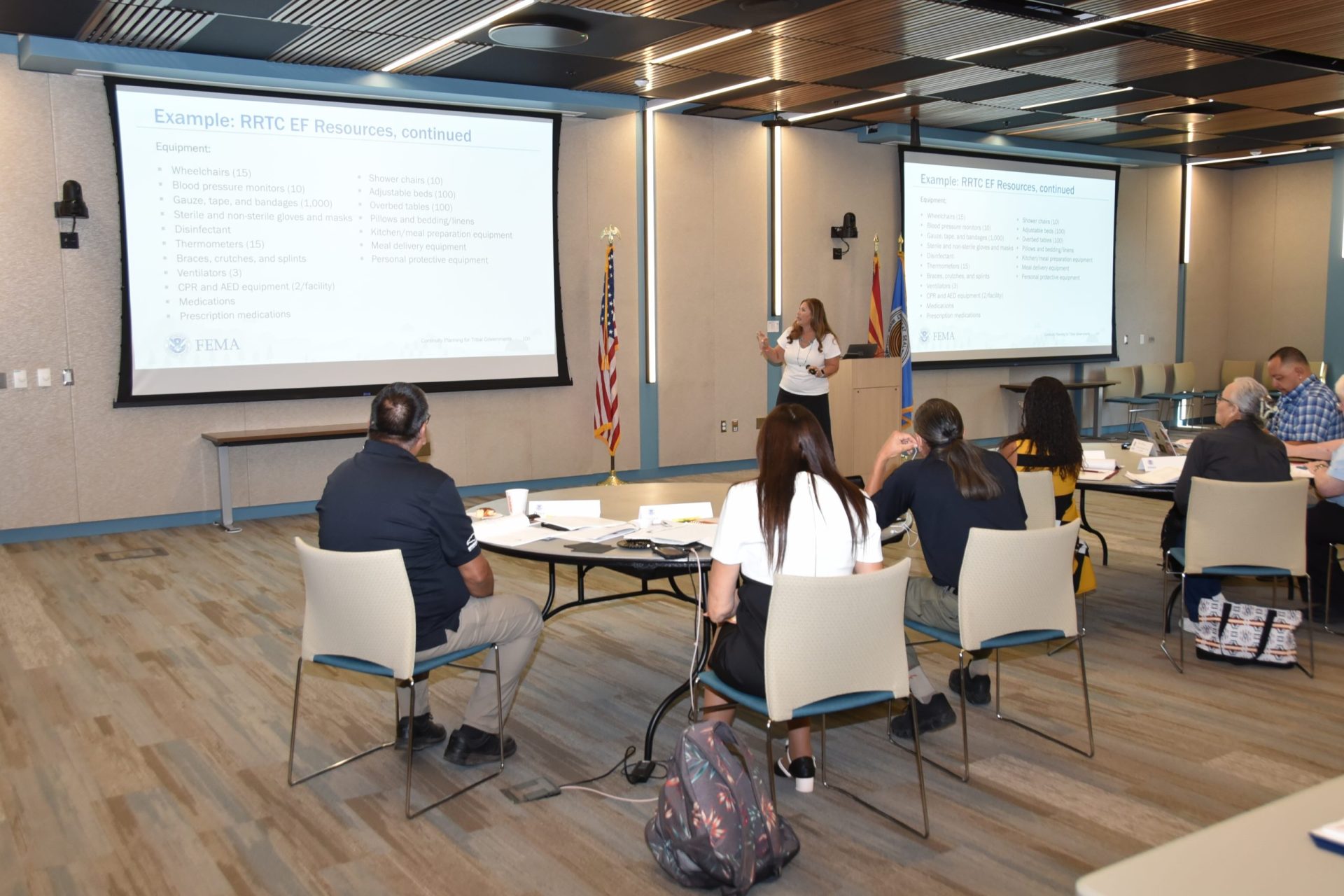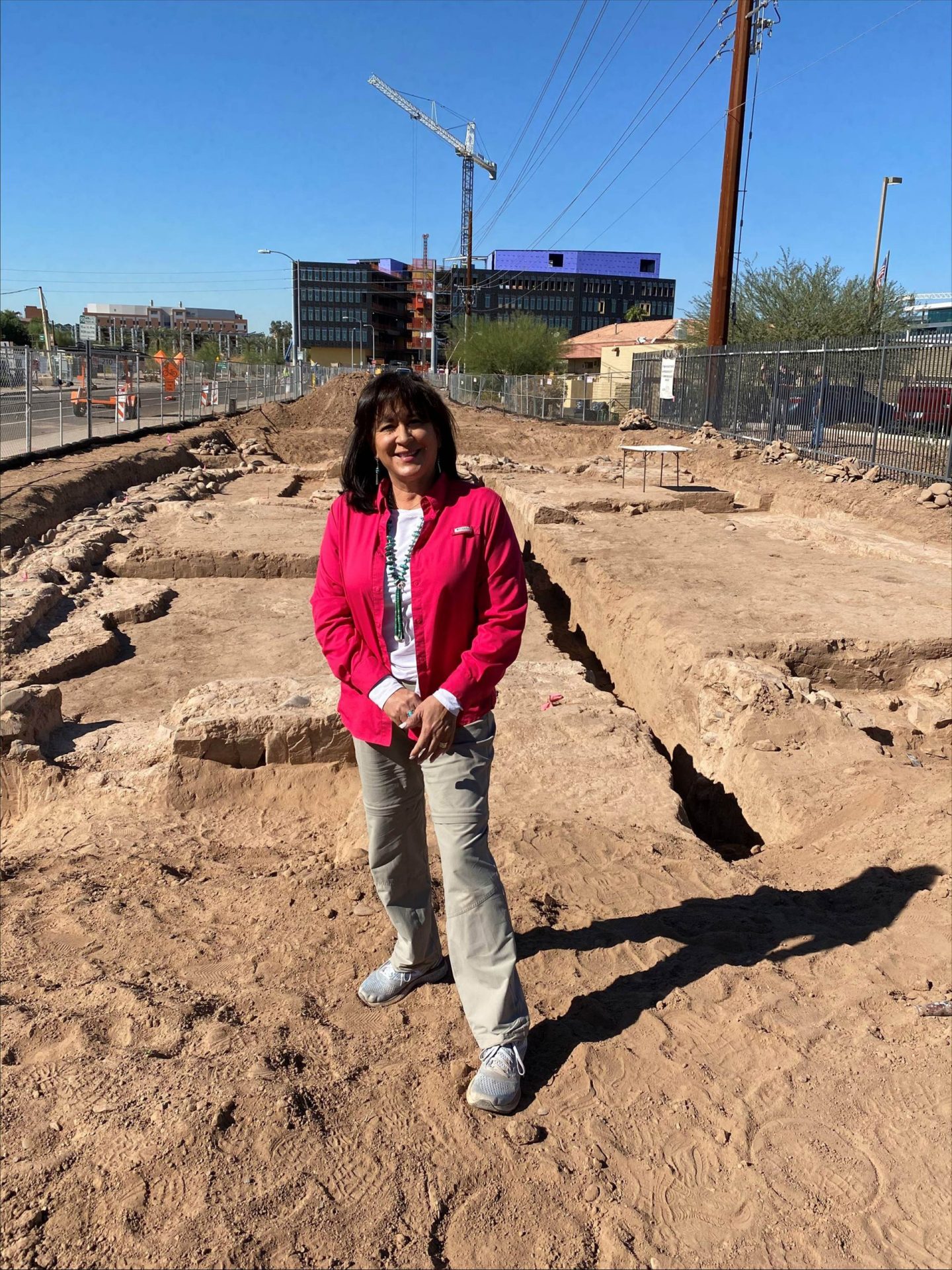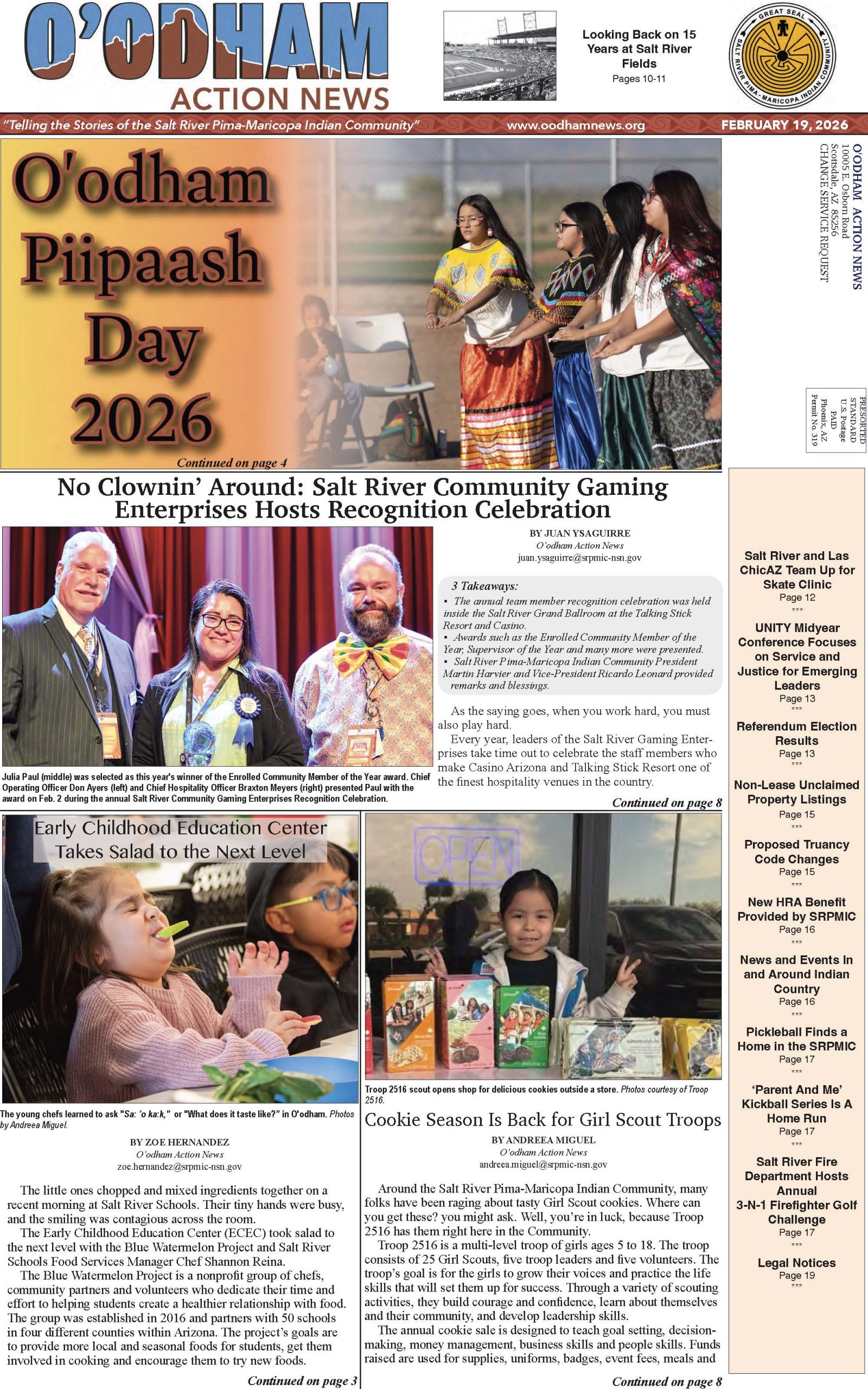VIEWS: 2655
December 5, 2023FEMA Continuity Planning for Tribal Governments Course Held at SCC
As students and faculty attended their classes at Scottsdale Community College (SCC) on the Salt River Pima-Maricopa Indian Community on November 1 and 2, little did they know that at the college’s Indigenous Cultural Center, the Federal Emergency Management Agency (FEMA) Office of National Continuity Programs (ONCP) was holding a training course for representatives from 15 tribal nations from across the country.
The ONCP guides the planning, implementation and assessment of continuity programs that enable federal, tribal and territorial governments to continue performing essential functions and delivering critical services to citizens during an emergency, according to FEMA.
The two-day pilot training course focused on continuity planning for tribal governments.
Representatives from the tribal nations contributed their feedback and expertise to help the ONCP update content for their recently developed tribal Continuity of Operations (COOP) curriculum that will be accessible to all tribal nations through the Emergency Management Institute (EMI).
Along with the SRPMIC, tribal nations represented at the course were the Blackfeet Nation, the Choctaw Nation, the Citizen Potawatomi Nation, the Cocopah Indian Tribe, the Mashpee Wampanoag Tribe, the Miccosukee Tribe, the Mille Lacs Band of Ojibwe, the Monacan Indian Nation, the Oglala Lakota Tribe, the Oneida Tribe, the Passamaquoddy Tribe, the Prairie Band Potawatomie Nation of Kansas, the Saint Regis Mohawk Tribe and the Ysleta Del Sur Pueblo Tribe.
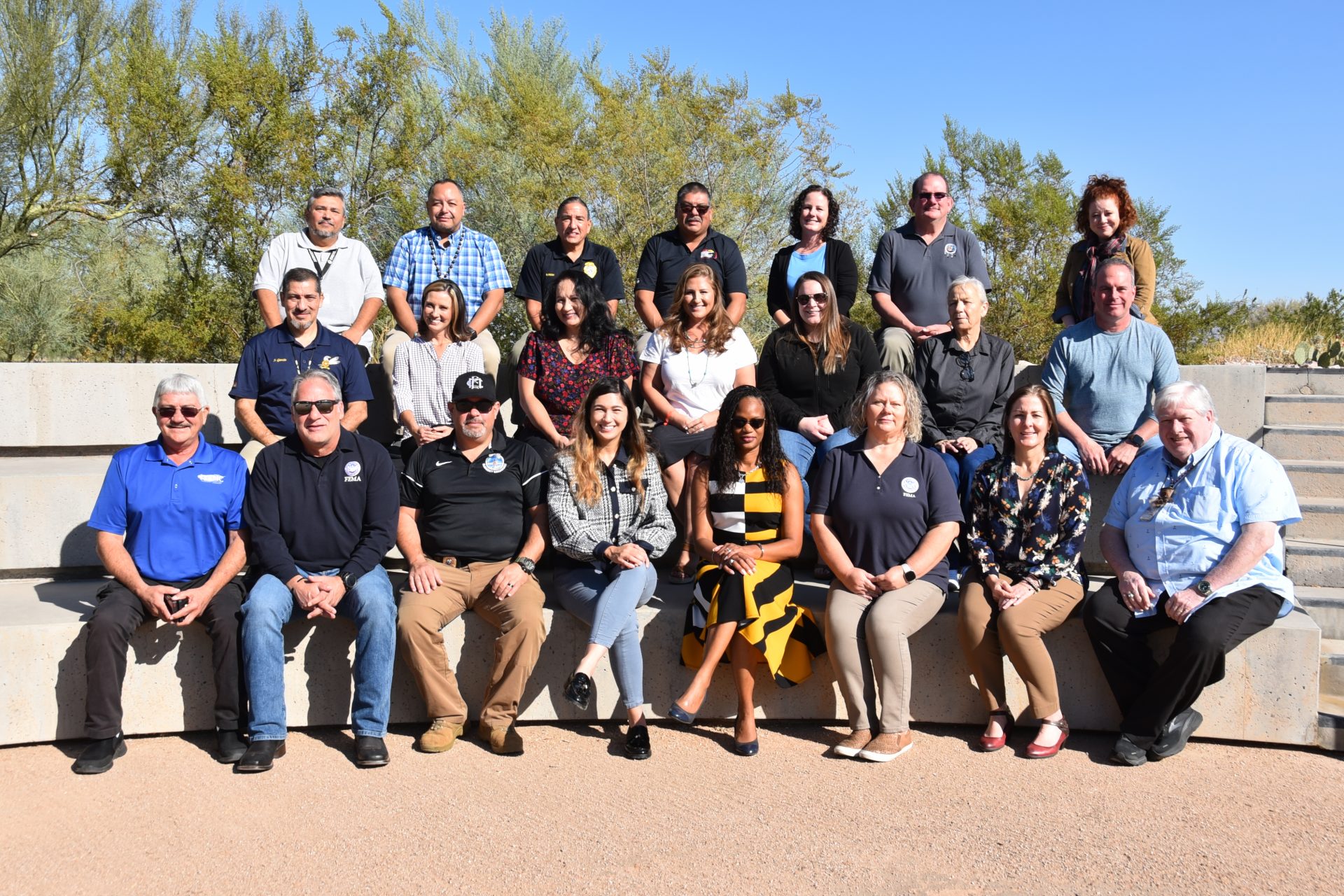
Middle row (left to right): Josue (Josh) Garcia, Ysleta Del Sur Pueblo Tribe; Holly Mann, FEMA ONCP; Cathy Bachhuber, Oneida Tribe; Christine Gregorek, FEMA ONCP; Paige Sprague, Passamaquoddy Tribe, Nora Kennedy, Blackfeet Nation, Charles Kmet, Salt River Pima-Maricopa Indian Community
Front row (left to right): Tim Zientek, Citizen Potawatomi Nation; Vincent Martinez, FEMA Region 9; Mike Fila, Cocopah Indian Tribe; Faith Power, FEMA ONCP; Ku’uipo (Kaye) Khabir-Harvey, Monacan Indian Nation; Rachel Nutter, FEMA Region 6; Christine Borgognoni, FEMA Region 9; Michael Graham, Miccosukee Tribe
SRPMIC Vice-President Ricardo Leonard provided a blessing to the visitors, and Dr. Eric Leshinskie, president of SCC, welcomed everyone to the campus.
The SRPMIC was represented at the course by Charles “Chuck” Kmet, emergency manager, and Joseph Urrea, emergency management coordinator.
The FEMA Tribal Liaison for Arizona contacted the Emergency Management program and asked if the SRPMIC would be interested in hosting the course. Emergency Management agreed to host, coordinating with FEMA in September and partnering with SCC, which Urrea said has been a great partner in the past.
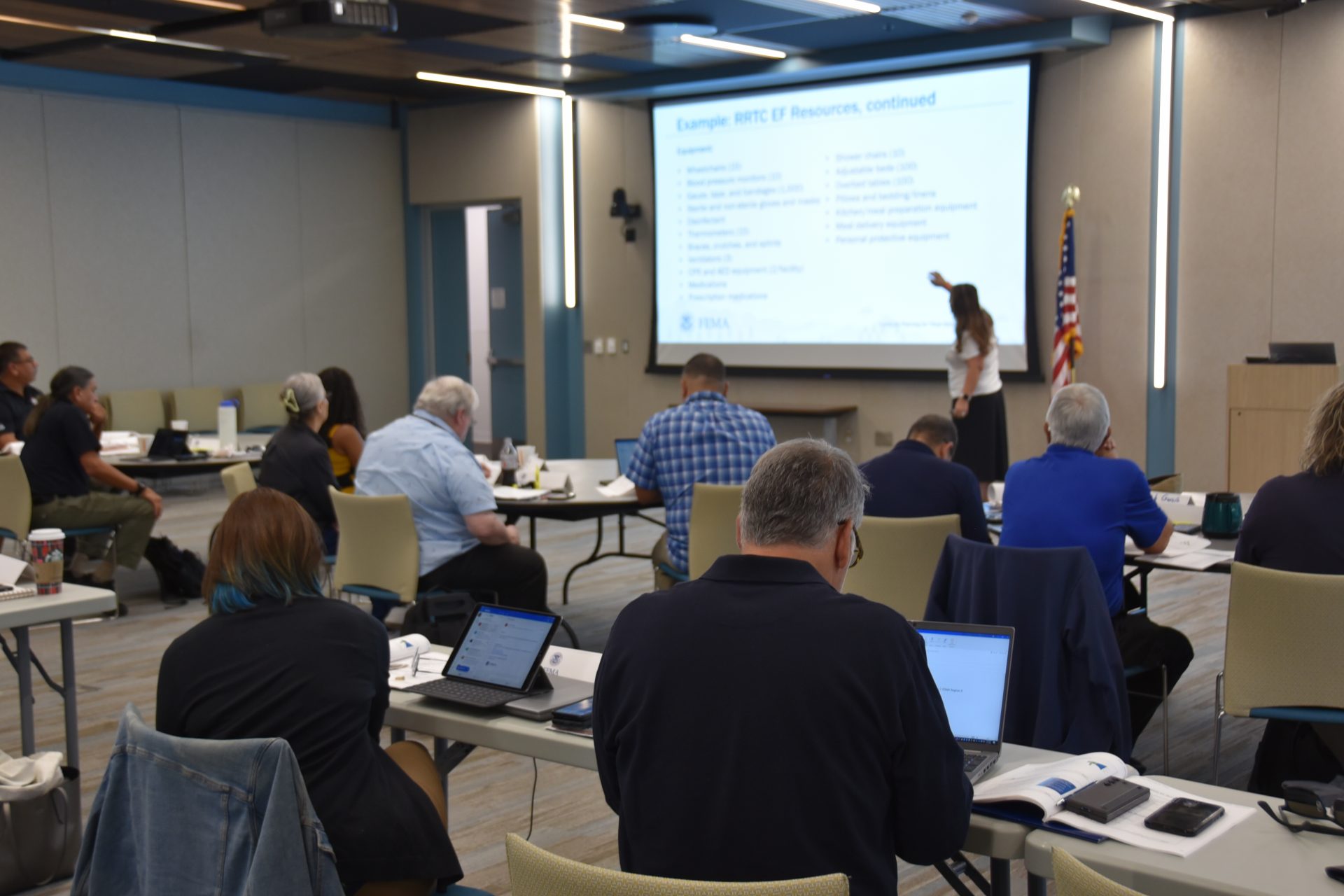
“ONCP is thankful for the opportunity to work closely with the diverse tribal nations that participated in the pilot and greatly appreciates the support from the SRPMIC and Scottsdale Community College to help improve training materials and better serve our tribal partners,” said Ashley E. Cox, Continuity Training Branch chief/Regional Stakeholder Branch chief (A), ONCP Policy, Plans, and Evaluation Division.
Urrea said that the training also provided ways in which tribal COOP planning can be accomplished while ensuring that tribes’ cultural and natural resources are respected and included.
“The greatest takeaways for me included seeing much-needed updates to the existing curriculum, as well as how receptive the FEMA team was to all of the recommendations that were being made by the attendees,” said Urrea. “I think the final product will be very helpful to tribes and will ensure that they are better prepared to help their members” during times of emergency.
The SRPMIC Emergency Management program will be hosting two more FEMA courses over the next six months.
“This is not only a reflection on the training efforts that we are making, but also the positive impression that the SRPMIC continues to make on all the emergency management professionals who visit,” said Urrea.

